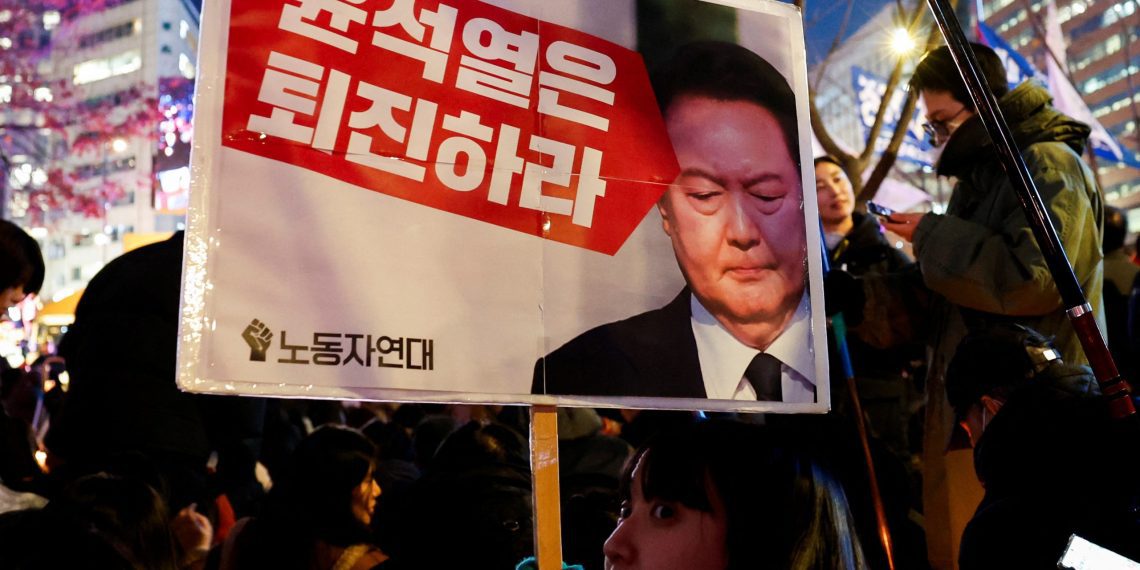South Korea’s spiraling political crisis has delivered a powerful message to authoritarian regimes worldwide: once democracy takes root, it becomes difficult to uproot. President Yoon Suk-yeol’s recent attempt to assert authority through martial law has backfired, highlighting the resilience of South Korea’s democratic institutions and the resolve of its people.
Martial Law Sparks Outrage
Facing plummeting approval ratings and corruption allegations, Yoon invoked martial law for the first time since the 1970s, citing threats from North Korea and communist actors. However, it quickly became evident that his primary target was not external adversaries but a defiant parliament blocking his budgetary proposals.
The move provoked widespread protests, with South Koreans flooding the streets to defend their hard-won freedoms. Lawmakers stood firm, the media maintained its coverage despite potential risks, and the military resisted using force against civilians. Within days, Yoon was forced to lift martial law, his authority weakened, and impeachment now looms as a real possibility.
A Lesson in Democratic Resilience
South Korea’s rapid return to democratic norms underscores the strength of its institutions. The country’s painful history of dictatorship has fostered a deep commitment to freedom among its citizens. Protesters demonstrated an unyielding belief in the power of democracy, pushing back against what many perceived as an overreach by the president.
For dictators or would-be autocrats worldwide, the episode serves as a cautionary tale. Even in moments of political turmoil, democratic societies have the capacity to resist authoritarian overreach when the rule of law and public accountability are upheld.
Economic and Geopolitical Implications
Yoon’s authoritarian misstep may have internal and external ramifications. Domestically, the swift backlash could bolster investor confidence in South Korea’s economy, showcasing the nation’s robust institutional framework. Internationally, however, Yoon’s potential departure could weaken East Asia’s anti-China bloc.
Yoon’s administration has been uniquely hostile toward Beijing and Pyongyang while fostering closer ties with Tokyo. A leadership change could soften South Korea’s stance toward China and North Korea while straining its relationship with Japan, potentially shifting the geopolitical dynamics of the region.
What Comes Next
As impeachment proceedings gain momentum, the crisis may end Yoon’s presidency but reinforce South Korea’s democratic identity. His failure to read the room and cooperate with a hostile parliament highlights the perils of political isolation and heavy-handed governance.
The events in South Korea send a resounding message: democracy, once established, can withstand the gravest challenges, reminding leaders worldwide that the will of the people is not easily silenced.









